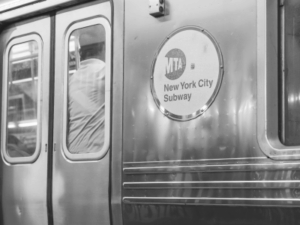
When it comes to New York City’s subways, safety isn’t always a part of the journey. Every year, hundreds of people are injured on subway platforms, stairways, and rail cars, making NYC public transit one of the most dangerous in the country. From crowded platforms to malfunctioning equipment, subway-related accidents happen far too often for the millions of people who ride it everyday.
If you’ve been injured while riding the NYC subway, you may feel confused, anxious, and unsure of what steps to take. You might be wondering: Who is responsible for my injuries? Can I sue the MTA? How much time do I have to act?
At Morelli Law Firm, we’ve helped countless New Yorkers and visitors navigate the complex legal system after serious accidents. We’re here to share with you what you need to know if you or a loved one has been hurt in the subway.
How Were You Injured on the Subway?
Subway accidents can happen in many ways. Some are caused by obvious hazards, while others involve less visible negligence behind the scenes. No matter how you were injured, if it was the result of someone else’s negligence, you could have a personal injury lawsuit. Some common injuries include:
- Slip, Trip, and Fall Accidents: caused by wet floors from rain or spills, snow or ice tracked in during winter, uneven or broken platform tiles, poor lighting, or debris left on walkways.
- Train-Related Incidents: this can be the result of sudden train movements, faulty brakes, operator error, malfunctioning doors, or overcrowding that can cause people to fall onto the tracks.
- Escalator and Elevator Accidents: this can include mechanical failures, missing safety guards, sudden stops, or poor maintenance.
- Structural Failures and Falling Objects: aging infrastructure can cause loose ceiling tiles, defective signage, or collapsing benches or railings.
- Assaults and Criminal Acts: inadequate security, poorly lit areas, or failure to respond to prior incidents can lead to otherwise preventable attacks.
Who Can Be Held Liable for Subway Injuries?
Many agencies can be held liable for your injuries, depending on the circumstances of your case. Determining who is responsible is one of the most important and complicated parts of a subway injury case, and our team will help hold whomever that may be accountable for your injuries. Some common entities that can be held responsible include:
The Metropolitan Transportation Authority (MTA)
The MTA operates the subway system, making it responsible for:
- Inspecting stations, trains, and equipment regularly
- Fixing dangerous conditions promptly
- Providing clear warnings about hazards
- Maintaining proper security measures
- Training staff to respond to emergencies
When the MTA fails in these duties and someone is injured as a result, that can form the basis of a negligence claim.
The City of New York
In certain cases, the city may share responsibility, especially if your injury involves city-owned property connected to the subway system or inadequate policing.
Private Contractors
The MTA hires contractors for construction, cleaning, repairs, and security. If a contractor’s negligence caused your accident, they can also be held liable.
Third Parties
In some cases, another passenger or an individual’s actions may have caused your injuries. For example, if someone pushed you during a confrontation, that person could be sued in addition to other parties.
You Have Legal Protections
Bringing a claim against the MTA isn’t the same as suing a private business. Specific rules and regulations govern public entities in New York, and to further complicate the issue, the MTA is a public benefit corporation, which means there are additional rules and deadlines you must follow.
Notice of Claim Requirement
Before you can file a lawsuit against the MTA (or most government entities in New York), you must file a Notice of Claim within 90 days of your accident. This document alerts the MTA that you intend to pursue compensation and outlines the details of your claim.
If you miss this deadline, your case may be dismissed before it even begins.
One-Year-and-90-Day Statute of Limitations
For most personal injury claims against the MTA, you have one year and 90 days from the date of the incident to file a lawsuit. This is shorter than the typical three-year limit for private injury cases in New York.
Comparative Negligence
New York follows a “pure comparative negligence” rule, which means your compensation can be reduced if you were partly at fault, but even if you were found mostly at fault, you can still recover damages. For example, if you were found 25% responsible for your accident, your award would be reduced by that percentage.
Compensation You May Be Entitled To
If your claim is successful, you may be able to recover damages for:
- Medical expenses (past and future)
- Lost wages and loss of earning capacity
- Pain and suffering
- Emotional distress
- Rehabilitation and therapy costs
- Wrongful death damages (for surviving family members)
Remember that Subway Accident Cases Are Different
Unlike other personal injury claims, subway accident cases involve:
- Shorter deadlines
- Government entity rules
- Potential for multiple liable parties
- Complex investigations into mechanical systems, safety protocols, and MTA records
Injured? We Can Help
At Morelli Law Firm, we understand the pain, stress, and uncertainty that comes with a life-changing injury. We’ve built our reputation on taking on some of the most challenging civil litigation cases in New York.
When you hire us, we will:
- Investigate your accident thoroughly
- Identify all liable parties
- Handle the Notice of Claim and all legal filings on time
- Negotiate aggressively for a fair settlement
- Take your case to trial if necessary
We’ve recovered billions for our clients, including precedent-setting verdicts, and we’re ready to fight for you. If you or a loved one has been injured in the NYC subway, the clock is already ticking. Remember, you have 90 days to file a Notice of Claim and one year and 90 days to file a lawsuit. Missing these deadlines can permanently prevent you from recovering compensation.
Contact our team today for a free, no-obligation evaluation. We’ll listen to your story, explain your rights in plain language, and help you take the first step toward justice.



